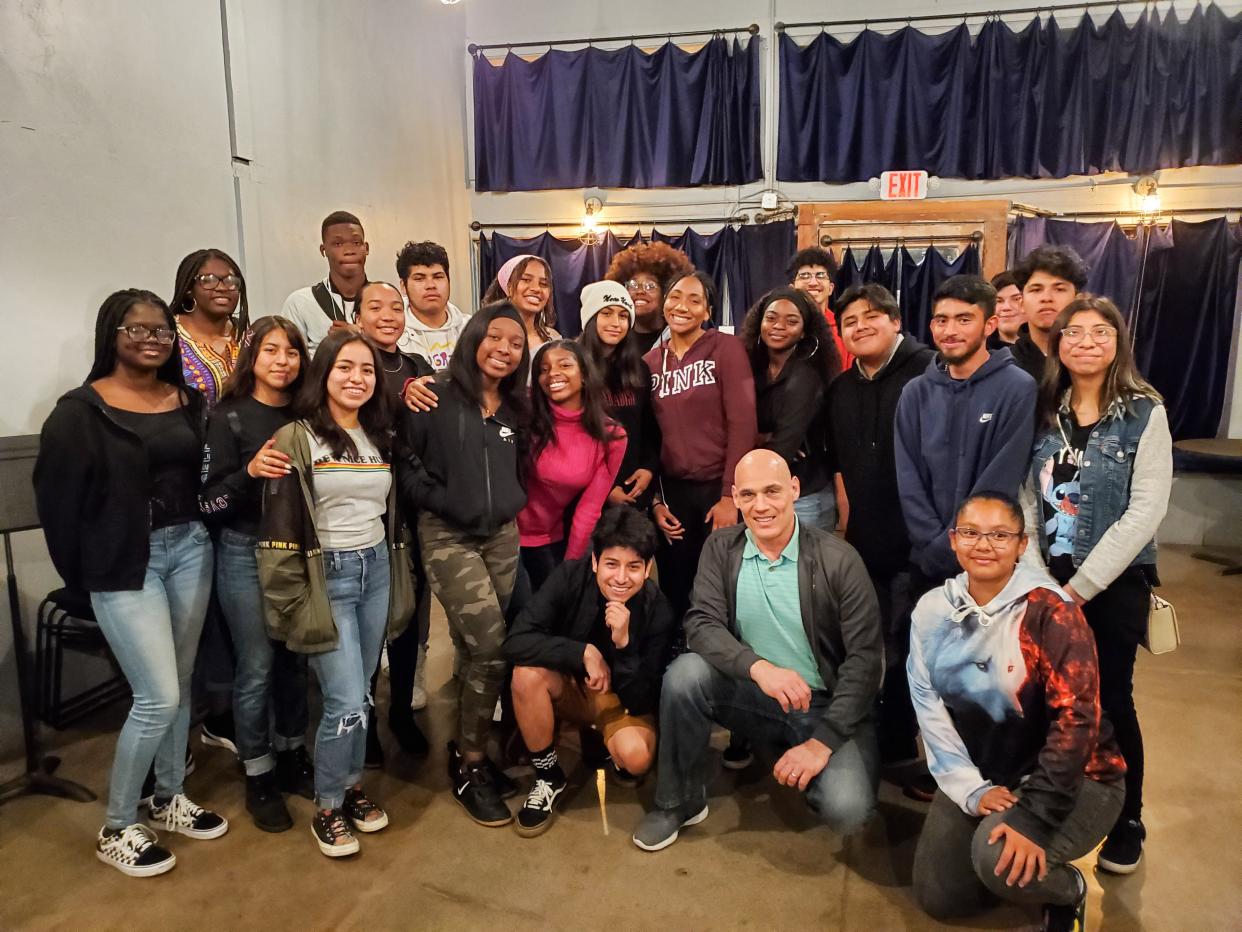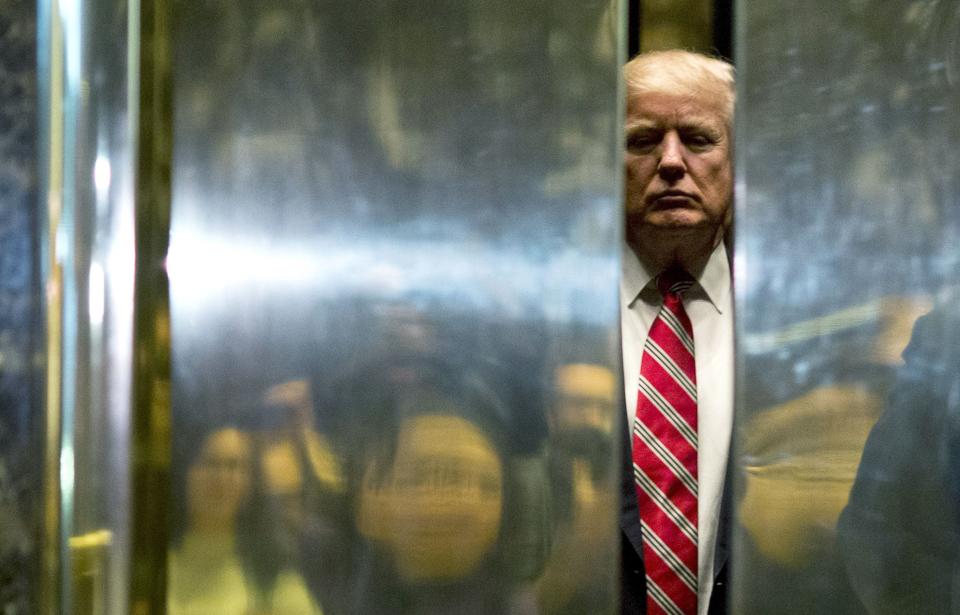Tax fraud hurts schools and students like mine. So does Donald Trump-style tax avoidance.

When former President Donald Trump’s company and CFO Allen Weisselberg were indicted for tax fraud late last month, reactions were predictably mixed. Trump and his loyalists alleged another witch hunt.
For those less enamored by the former president, there is disappointment that Trump himself has not been frog-marched out of his resort. But there must be some satisfaction witnessing the IRS perils of a company owned by a man who declared to the world that not paying taxes made him smart. I suppose it should be noted that Trump’s claim, made during a presidential debate with Hilary Clinton in 2016, was in reference to legal tax avoidance. Not tax evasion, which is a crime.
Tax avoidance is a national pastime that employs thousands of very smart people. But when the biggest beneficiaries of the tax-avoidance loopholes are the same individuals, families and entities whose money most influences who gets elected and how they legislate, forgive me for seeing a big blur when I look for the line between criminal and smart.
Money makes a difference in schools
Forgive me because, for 30 years, I’ve tried to help educate children who are the victims of that blurry line. In an underfunded public school system where the most vulnerable students are drowning in overcrowded classrooms, teachers spend thousands of dollars of our own money for educational essentials and some of the best young teachers are lost, often permanently, to budget cuts.
I don't disregard all the mismanagement, waste and corruption in our education system, all the twisted priorities that suck resources out of classrooms and into the overly-layered administrative vortex. But when you’ve been in the system long enough, it becomes undeniable that money can make a difference.
Opinions in your inbox: Get the best insights and analysis delivered to your inbox
You know that when you take students on a field trip to their first art museum or professional stage play and years later they tell you that experience was a transformation to which they owe their professional success. You know this when you understand that high school sports, in South Los Angeles where I teach, are a gang prevention program – but the athletes have to risk getting jumped by gangs in order to fund-raise, sometimes door-to-door, to help pay for their season.
So I find it poignant that the Trump Organization may have evaded taxes, in part, by expensing the exorbitant private school tuition of its CFO’s children. The students I teach live in a community suffering indifference and neglect which on two occasions (in 1965 and again in 1992) pushed people to collective rage and destruction. Those uprisings were both responses to police abuse and over-policing but it would be naïve and probably self-serving to believe that the institutionalized brutality of economic disparity played no part.
Trump meets his match: Manhattan DA's tax fraud charges show accountability is coming
Tax codes are deliberately obtuse formulations designed to preserve wealth, often at the expense of upward mobility. It's interesting and probably not accidental that they are called “codes” – these secrets available almost exclusively to the privileged who get to express their intelligence by keeping more money than the rest of us can imagine ever having or needing.
It's a code of systemic favoritism and entitlement, and why wouldn't those who benefit from it, and find it necessary to further cheat the system, to cheat my students and everyone else ever denied access and opportunity, want to minimize the seriousness of the cheating and the crime?

That’s a rhetorical question. As are these:
Is the crime of the rich breaking the law to rob the rest of us less serious than the non-violent third strike that deprived one of my students of a father growing up?
Is it less serious than the underfunded public defenders in much of our country that leave innocent people with no choice but to plead guilty to crimes they didn’t commit?
Is it less serious than an underfunded child welfare system that leaves many of our most vulnerable young people traumatized and then ages them out into poverty and homelessness?
Less serious than an underfunded and mismanaged federal housing system that fails at its most basic mission and leaves half a million Americans unhoused?
Or a health care system still inaccessible to thousands of Americans every year?
Laughing at us all the way to the bank
I have actually, on more than one occasion, tried to explain to some of my students the difference between tax evasion and tax avoidance. I am usually pretty good at explaining things to students, but this one has never gone well.
Most students can understand the generalities of legally pretending to have little or no income by pretending that personal expenses are business expenses and that one’s very existence is a business. They have a harder time understanding why the law allows that for the people who have the most and need the least.
Entitled and deluded: Trump is a terrible role model for my teams. And a dangerous one.
Mostly such explanations leave everyone in the room really depressed. It's bad enough to live with the degradations of poverty – the shattered streets and sidewalks and lives invisible to those with power and influence. It's far worse to realize that the people who have everything they need and never see the devastation up close are laughing, at us, all the way to the bank.
Perhaps the prosecution of Trump’s business, his CFO and whoever else gets caught is highly selective. Perhaps it actually is a vendetta against a divisive president who tried to steal an election and then encouraged an insurrection.
If so, then let’s make things right. Let's investigate every other billionaire and large corporation and uncover all the other tax fraud. And then pass laws that ensure that those who can most afford it pay their fair share.
Larry Strauss, a member of USA TODAY's Board of Contributors, has been a high school English teacher in South Los Angeles since 1992. He is the author of more than a dozen books, most recently "Students First and Other Lies: Straight Talk From a Veteran Teacher" and, on audio, "Now's the Time" (narrated by Kim Fields). Follow him on Twitter: @LarryStrauss
You can read diverse opinions from our Board of Contributors and other writers on the Opinion front page, on Twitter @usatodayopinion and in our daily Opinion newsletter. To respond to a column, submit a comment to letters@usatoday.com.
This article originally appeared on USA TODAY: Trump company fraud charges show how cheating hurts students like mine

